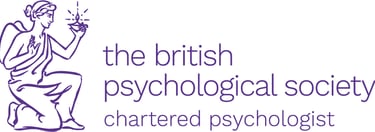Supervision
I am registered with the British Psychological Society's Register of Applied Psychology Practice Supervisors (RAPPS)
What You Can Expect
Personalized Guidance: Benefit from tailored feedback on your clinical work, helping you to refine your approach and improve client outcomes.
A Safe, Reflective Space: Discuss complex cases, ethical dilemmas, and professional challenges in a confidential and supportive environment.
Ongoing Professional Development: Stay up-to-date with best practices, develop your skills, and maintain ethical standards in your practice.
Our Approach
Dr Sahar's supervision is grounded in evidence-based models such as the Discrimination and Developmental Models. He provides flexible individual online meetings to accommodate your needs and schedule.
Why Clinical Supervision?
Supervision is vital for professionals at all stages of their careers:
New Practitioners: Gain the support and direction needed to build confidence and competence.
Experienced Therapists: Continue evolving, receive valuable peer feedback, and ensure the highest standards of care.
Licensure or Certification Candidates: Receive the structured oversight required to meet professional requirements.
Contact Dr Sahar for clinical supervision that fosters growth, learning, and excellence in practice. Reach out today to find out how you can be supported.


Clinical Supervision: Enhance Your Professional Growth
Dr Sahar's clinical supervision service is designed to support therapists and mental health professionals in providing the best care possible while ensuring their own personal and professional development. Whether you are newly qualified or a seasoned practitioner, supervision is a key aspect of delivering ethical and effective therapy.
Get to know
How Supervision Works
Reflective Practice: Central to clinical supervision is the concept of reflection. Reflective practice involves thinking deeply about one's experiences, attitudes, and emotions in order to better understand and improve future actions. This process promotes continuous learning and personal growth.
Reflexivity: Reflexivity expands on reflection by considering how one's personal beliefs, biases, and social context influence interactions with clients. By examining these underlying assumptions, therapists can enhance their therapeutic relationships and practice in a more culturally sensitive and inclusive way.
What is Clinical Supervision and How Can It Be Used?
Clinical supervision is a collaborative and reflective process that supports therapists and mental health professionals in improving their practice. It provides a structured space for discussing challenging cases, exploring professional dilemmas, and enhancing self-awareness. The goal is to ensure ethical practice, maintain professional growth, and foster the best outcomes for clients.
Key Benefits of Supervision
Personal Growth: Supervision helps therapists develop self-awareness, honesty, and insight into their values, attitudes, and biases. This leads to improved interpersonal skills and strengthens the therapeutic alliance.
Skill Development: Supervision offers the opportunity to practice techniques, receive constructive feedback, and stay up-to-date with evidence-based approaches. It plays a key role in honing clinical expertise and building confidence in decision-making.
Cultural Sensitivity: Reflecting on issues of diversity, social inequalities, and personal biases is crucial to delivering culturally competent care. Supervision helps therapists address these issues, enabling them to engage more effectively with clients from diverse backgrounds.
Tools for Reflection
Self-reflection Techniques: These include reflective writing, reviewing therapy sessions, and seeking client feedback. These methods help therapists deepen their understanding of client dynamics and identify areas for improvement.
Use of Models: Evidence-based models such as the Discrimination and Developmental Models guide the supervision process, providing structured frameworks for personal and professional growth.
Why Use Clinical Supervision?
Supervision is invaluable for both novice and experienced therapists. It provides the guidance needed to develop critical thinking skills, improve therapeutic competence, and manage the complexities of clinical work. Whether you're seeking licensure, navigating ethical dilemmas, or aiming to improve client outcomes, clinical supervision offers the tools and support you need to grow as a practitioner.











